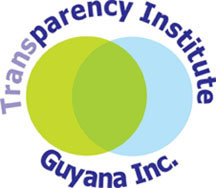“Courage is never to let your actions be influenced by your fears” Arthur Koestler.
Google the word courage and hundreds of definitions will appear. Throughout history different people have defined courage in different ways – often in the context of a particular situation giving rise to the demonstration of courage. Google courageous people and one will inevitably find the names of people such as Martin Luther King, Mahatma Gandhi, and Rosa Parks. In the context of Guyana, Walter Rodney, Cheddi Jagan and Hubert Critchlow immediately come to mind. These are the household names of our familiar.
This writer has chosen to consider the courageous actions of ordinary people and to ask whether in the context of an anti –corruption movement Guyanese will continue to live fearfully or apathetically or will demonstrate the courage to challenge the status quo.
“It is the bravery of the people who stand up to demand accountability from those in power who inspire us” Cobus De Swardt, Transparency international.
In the months following the establishment of Transparency Institute Guyana many people shared stories of corruption with this writer – often expressing frustration, inevitably concluding that to challenge corruption is to draw unwanted attention and possibly harm to oneself and family. Corruption was reported as bribery, nepotism and graft. Conversations with potential members revealed that people feared victimization though loss of work or other financial penalties. Many proffered support but only under the guise of anonymity. Those people are the fearful ones. The ones with courage are emerging purposefully determined to be a part of the change that is quietly taking place in this country. There are those of course who are apathetic, in a state of indifference, often seeking salvation in the denial of the existence of corruption.

Guyanese people are acutely aware of issues of corruption whatever name they may choose to give it. Spend enough time in the markets, rum shops, bus parks and other informal meeting places and one will hear stories, fervent disputes and discussions on the subject of corruption. The challenge for the anti corruption movement is overcoming the cynicism most possess that change is not possible and that the average person is incapable of effecting that change. The greater challenge is convincing citizens that by participating in corrupt practices they are contributing to a poorer Guyana.
Global true stories (reported by Transparency International Chapters)-
In 2002 Guatemala outlawed the employment of family members by Government officials. One citizen Juan discovered the Mayor in his district had employed around ten relatives including his wife, sons and daughters. He reported his suspicions to the local Controller General Office and was told that he was putting himself at risk by reporting the matter. He sought advice from TI- Guatemala. Based on the advice given by the Chapter Juan wrote to the Mayor’s office requesting copies of the employment contracts of all employees. His request was ignored. Following the intervention by the TI Chapter the information was released to Juan who again returned to the Controller General’s office. Once again he was refused action. He was pulled off a bus by a group of armed men who threatened to kill him if he did not abandon the case. Juan took his case to the capital where following investigation five relatives of the Mayor were forced to step down.
TI-Zimbabwe learnt from women in several communities that in some hospitals in Zimbabwe nurses were charging US$5 each time a woman screamed whilst giving birth. This charge justified as a penalty for raising a false alarm. Women who were unable to pay the fees were detained in the hospitals in addition to being charged interest on the debt. Some women had to be helped by relatives to escape from the hospitals. Others who were released were pursued by debt collectors. TI- Zimbabwe wrote to the Ministry of Health requesting an investigation. No response was received from the MOH. The Chapter then contacted the Deputy Prime Minister who called for an investigation into maternal health issues including the one reported by the Chapter. Following the investigation no further complaints on this issue were made by women using the hospitals.
These two examples illustrate the courage of the ordinary to challenge situations of abuse of power for private gain.
Guyanese people need to ask themselves and each other whether the legacy to be left to future generations is a legacy of fear and apathy or courage in the face of potential harm. Perhaps we ought to consider some of those brave ones who have inspired generations of people around the world to change their communities through acts of courage. Aung San Suu Kyi the Burmese opposition politician who spent many years under house arrest for her stance on democracy. Lt. Ethren Watada of the US army who refused to fight in the Iraq war believing it to be a war based on false evidence. More recently Anna Hazare the soldier who became the face of the anti-corruption movement in India. Lastly that lone individual who stood in Tiananmen Square in 1989 knowing his life was in danger of being lost in that terrible moment of absolute bravery.
Transparency Institute Guyana Inc is open to membership to those who share its objectives which is the promotion of transparency and accountability and the eradication of corruption. Call us on 664-3639 or email us at trans.inst@yahoo.com.





